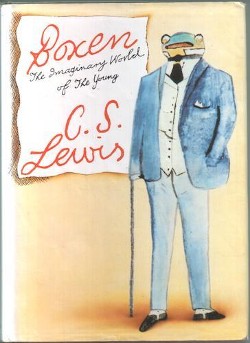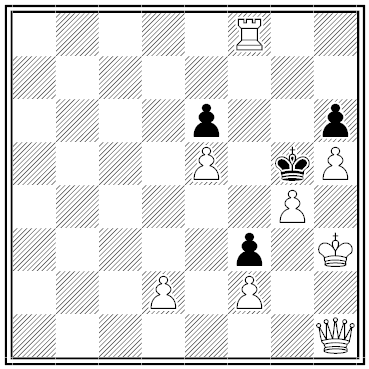Full text of “The Unsuccessful Self-Treatment of a Case of ‘Writer’s Block’,” by Dennis Upper, from the Journal of Applied Behavior Analysis, Fall 1974:
Black and White
In a Word
marabou
n. a person who is five-eighths black and three-eighths white by descent
griff
n. a person who is three-fourths black and one-fourth white
mulatto
n. a person having one white and one black parent
The ultimate in racist lunacy was reached in Haiti in the eighteenth century, where Saint-Mery developed a classification of physical types based on the notion that each individual was divisible into no less than 128 separate parts (rather like genes):
‘Thus a blanc (white) had 128 parts white, a nègre (Negro) 128 parts black, and the offspring a mulâtre (mulatto) 64 parts white and 64 parts black. In addition, he also listed sacatra (8 to 23 parts white), griffe (24 to 39 parts white), marabou (40 to 48); quateron (71 to 100); metif (101 to 112); mamelouc (113 to 120); quateronné (121 to 124) and finally a sang-mêlé (125 to 127).’
Given the additional presence of Indians as well as Negroes, Mexican castas were even more complex.
— Peter Worsley, The Three Worlds: Culture and World Development, 1984
Nose Knowledge

Seeing a rose seems to give me information about a flower out there in the world. But smelling it, blindfold, is a curiously internal experience: I can suppose, even confidently, that it’s a rose I’m smelling, but this feels like a surmise, and one based only on an impression in my mind. The visual world seems to be made up of independent objects with observable properties, but the world of smell seems to exist only in our consciousness.
If there were no creatures here to observe them, roses would still be red. But would they still smell sweet?
Boxen

Stuck in a book-filled house in dreary Belfast in 1906, the 8-year-old C.S. Lewis repaired to the attic with his 11-year-old brother Warren and began to fashion an imaginary world. Jack’s half was called Animal-Land, and Warnie’s was an island called India. The two, connected by steamship routes, formed a world they called Boxen, the subject of novels, textbooks, maps, and even newspapers that the two composed over the next five years:
In those days Mouse-land was called ‘Bublish’ and the mice called Bubills.
Shortly after the ‘Melee of Hacom’s Palace’ (for so it shall be called) some inhabitants of Bombay came over to buy nuts. They taught the mice many things. The most important of which was: the use of money. Before that the Mice (or Bubils as they were called) exchanged things in markets. The Indians landed in 1216.
The Indians as it has been told gave knowledge to the Bublis. But the Bublies asked for some of it. The Bublis asked the Indians how they got on without fighting each others men. The asked ones told the Bubils that they choose a man to rule them all and called him Rajah or king.
The Bubils followed that plan. But no!! ‘Out of the frying-pan into the fire.’ Poor miss led creatures. Now they fought all the more!! Why? Because each mouse wished to be king. One had as much right to the throne as an other. So every place was fighting.
Jack’s Animal-Land drew on the “dressed animals” of Beatrix Potter, but, influenced by the political table talk of their father, it set them in prosaic histories and palace intrigues rather than heroic adventures. “For readers of my children’s books, the best way of putting this would be to say that Animal-Land had nothing whatever in common with Narnia except the anthropomorphic beasts,” he wrote later. “Animal-Land, by its whole quality, excluded the least hint of wonder.”
Update

In late May 1927, when the world had been rejoicing for a week over Charles Lindbergh’s nonstop solo flight across the Atlantic, Robert Benchley sent a telegram to Charles Brackett in Paris:
ANY TIDINGS OF LINDBERGH? LEFT HERE WEEK AGO AM WORRIED.
Brackett wrote back:
DO YOU MEAN GEORGE LINDBERGH?
Unbound

Samuel Johnson’s 1759 novel Rasselas contains a remarkable passage — he anticipates the airplane by nearly 150 years:
He that can swim needs not despair to fly; to swim is to fly in a grosser fluid, and to fly is to swim in a subtler: We are only to proportion our power of resistance to the different density of the matter through which we are to pass: You will be necessarily upborne by the air, if you can renew any impulse upon it, faster than the air can recede from the pressure.
“As a basic claim for a modern patent, the statement could not be broader nor more comprehensive,” wrote a correspondent to U.S. Air Service in 1920. “It only required the modern high-powered internal combustion engine to render his claim effective.”
Ambassador

Dutch artist Florentijn Hofman set a 26-meter inflatable rubber duck floating around the world in 2007. So far it has visited Hong Kong, Australia, Japan, Belgium, France, New Zealand, and Brazil, and it will eventually reach the United States.
“It brings joy, obviously,” Hofman told ABC News. “It brings people together. We are living on a planet, we are one family, and the global waters are our bathtub.”
Blocked
You have n cubical building blocks. You try to arrange them into the largest possible solid cube, but you find that don’t have quite enough blocks: One side of the large cube has exactly one row too few.
Prove that n is divisible by 6.
Unquote

“It’s odd how soon one comes to look on every minute as wasted that is given to earning one’s salary.” — P.G. Wodehouse

